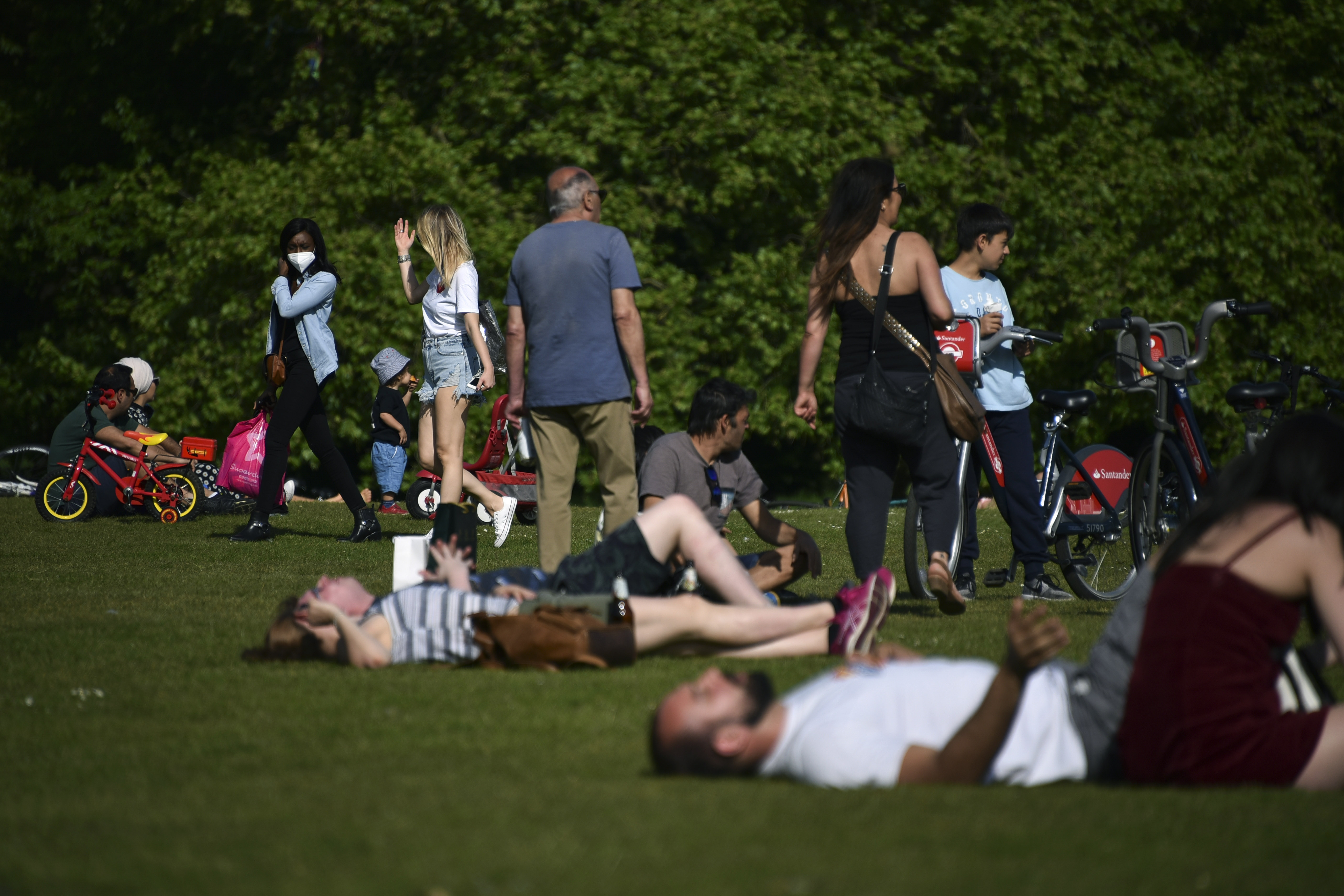Passengers arriving in the UK from June will have to fill in a digital form giving an exact address where they will self-quarantine for 14 days under pain of a hefty £1,000 fine if they are caught flouting the rules.
It is being widely reported this will be among the much anticipated changes announced by the Prime Minister Boris Johnson on Sunday evening.
With well over 30,000 deaths from coronavirus — the worst in Europe — and the numbers still climbing daily by several hundred, environment secretary George Eustice warned people not to expect too much: “There isn’t going to be any dramatic overnight change. We’ve to be very cautious, we are not out of the woods yet.”
Housing secretary Robert Jenrick has said it is still too early to reopen religious services, such as at churches, temples and mosques.
On schools, the message is mixed.
Expectations had been raised by a spate of celebratory headlines — “Happy Monday” in The Sun; “Hurrah! Lockdown freedom beckons” in the Daily Mail; “First steps to freedom” in the Daily Express; and “Magic Monday” in the Daily Star.
Frederick Forsyth, bestselling author of The Day of the Jackal and other thrillers, has ridiculed the government: “Like gullible children we are harangued daily with ‘Stay at home, protect the NHS, save lives’.”
Forsyth, who is 81, raged: “The arbitrary ‘over 70 and you might as well be dead’ judgment is rubbish. There are hundreds of thousands over 70 fit as fleas and hundreds of thousands under that age seriously weakened.
“So it looks as if the morbidly obese, chain smokers and alcoholics will be considered fit if under 70 and those over, rarin’ to go and able to help, will be forced to continue in house arrest. But we are the majority patrons of cafes, bars, pubs and village shops. How will they ever recover?”
It is fair to say Boris is being pulled in opposite directions. To complicate matters, under the devolved system of government, the administrations of Scotland, Wales and Northern Ireland can introduce local changes which can differ from those adopted by Westminster.
Transport secretary Grant Schapps has said staff should walk or cycle to work if possible to avoid packing people onto public transport where the virus could be passed on more easily.
There could also be further guidance on wearing masks while travelling after a survey by rail and road watchdog Transport Focus found 51 per cent of people would not be happy using trains and buses unless passengers were required to wear them.
Employees in non-essential industries who have been operating from home may be allowed to return to work but they may also be encouraged to wear masks.
Garden centres will be allowed to reopen from Wednesday May 13. , it is being reported.
Fast food franchises including McDonald’s and KFC have already announced they will begin opening locations for delivery services, with more sites likely to reopen in the coming weeks.
The reopening of pubs and bars, however, is unlikely to happen next month, with some reports claiming they will not return until August and September.
According to some reports, unlimited outdoor exercise will be allowed from Monday, although gyms and playgrounds are expected to remain closed.
Public Health England has signalled the “stay home” message could be abandoned and reports suggest people using benches, having picnics or sunbathing will no longer be asked to move on by the police, provided they keep two metres apart.
The reaction from the airline industry has not been positive to the proposed 14-day quarantine. Airport Operators Association chief executive Karen Dee said the plan would have a “devastating impact” on the aviation industry and the wider economy.
“If quarantine is a necessary tool for fighting Covid-19, then the government should act decisively to protect the hundreds of thousands of airport-related and travel-related jobs across the UK,” she added.

